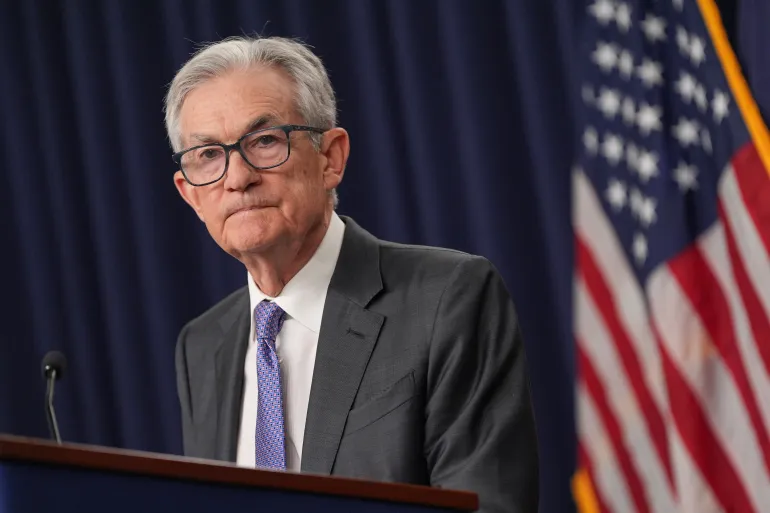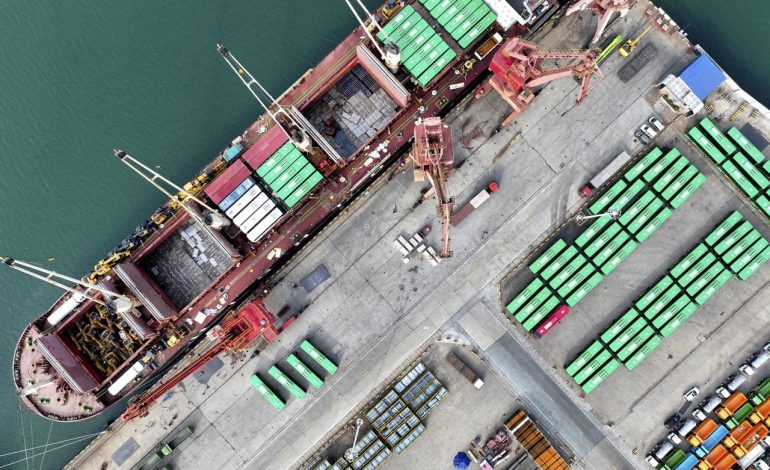On Monday, President Donald Trump escalated the ongoing trade dispute with China, threatening to impose a new set of tariffs on Chinese goods unless Beijing retracts its retaliatory tariffs on US products.
The US President stated that a 50% tariff would be implemented on Chinese exports starting Wednesday if the Chinese government does not withdraw its recently imposed 34% retaliatory tariff by Tuesday. This latest development in the trade war caused further volatility in global financial markets, with the S&P 500 briefly dipping into bear market territory.
Trump’s firm stance on his trade policies has raised concerns about a potential global economic downturn. The market’s instability was palpable, with European stocks sinking for the fourth consecutive session and Asian markets, including the Shanghai Composite and Hong Kong’s Hang Seng Index, experiencing steep losses. These declines come in the wake of Trump’s announcement of reciprocal tariffs on a wide range of imports from key US trading partners, including China, the European Union, and other countries like Vietnam, Cambodia, and Sri Lanka.
The US President defended his tariff policies, arguing that the measures have already generated billions in revenue for the United States. He further emphasized that negotiations with China would come to an end unless China withdraws its tariff increases. Trump’s remarks have added to global concerns, particularly in Asia, where economies such as Vietnam and Cambodia, heavily reliant on exports to the US, are expected to suffer disproportionately from the new tariffs.
The threat of additional tariffs has intensified fears of a full-blown global trade war. Countries around the world, particularly in Europe and Asia, are adjusting their economic strategies in response to the US moves. In Europe, stock indices fell sharply, with the pan-European Stoxx 600 experiencing its worst week in five years. The decline in European markets is partly driven by the broader fallout from Trump’s tariffs on steel, aluminum, and automotive imports, which have triggered countermeasures from the European Union.
Despite the market’s negative reaction, Trump has shown no signs of softening his approach, insisting that the tariffs are a necessary tool to correct what he sees as long-standing trade imbalances. In the wake of the tariff threats, global investors are turning to safe-haven assets like gold and the Japanese yen, as they brace for continued uncertainty. JPMorgan and Goldman Sachs have raised their forecasts for a potential US recession, citing the adverse economic effects of the trade tensions.
As the situation unfolds, Trump has dismissed reports of a potential pause in tariff hikes, describing them as “fake news.” Meanwhile, European leaders, such as UK Prime Minister Keir Starmer, are engaging in talks with the US to mitigate the impact of the tariffs on their economies, with efforts to diversify trade relationships and reduce reliance on the US market.
CNBC, CNN, the New York Times, and BBC contributed to this report.










The latest news in your social feeds
Subscribe to our social media platforms to stay tuned